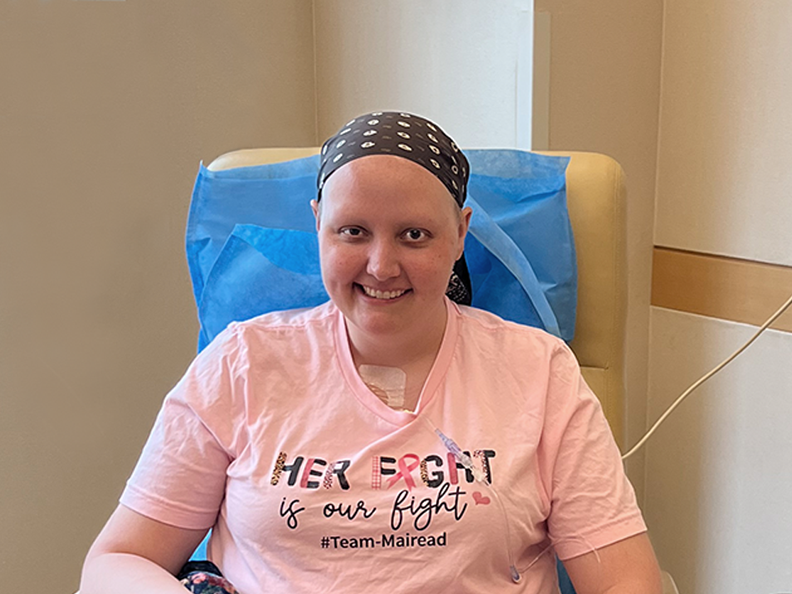Your gift is 100% tax deductible
Questions to Ask About Eye Cancer
It’s important to have honest, open discussions with your cancer team. They want to answer all your questions, so that you can make informed treatment and life decisions. For instance, consider these questions:
When you’re told you have eye cancer
- What kind of eye cancer do I have? (Most eye cancers are melanomas, also known as ocular melanomas or intraocular melanomas.)
- What is the stage (extent) of my cancer, and what does that mean?
- Has my cancer spread beyond the eye?
- Will I need any other tests before we can decide on treatment?
- Will I need to see any other types of doctors?
- Are there other factors that could affect my treatment options?
- If I’m concerned about the costs and insurance coverage for my diagnosis and treatment, who can help me?
When deciding on a n eye cancer treatment plan
- How much experience do you have treating this type of cancer?
- Should I get a second opinion? Can you recommend a doctor or cancer center?
- What treatment choices do I have? What do you recommend and why?
- What is the goal of treatment (cure, prolonging life, relieving symptoms, etc.)?
- What are the risks or side effects of the treatments you suggest? What is the risk of losing vision in the eye from the different treatments?
- What should I do to be ready for treatment?
- How long will treatment last? What will it be like? Where will it be done?
- How will treatment affect my daily activities?
- What are the chances my cancer will come back (recur) after treatment?
- What would our options likely be if the treatment doesn’t work or if the cancer recurs?
During treatment for eye cancer
Once treatment begins, you’ll need to know what to expect and what to look for. Not all of these questions may apply to you, but getting answers to the ones that do may be helpful.
- How will we know if the treatment is working?
- What can I do to help manage side effects?
- What symptoms or side effects should I tell you about right away?
- How can I reach you or someone on your team on nights, holidays, or weekends?
- Are there any limits on what I can do?
- Can you suggest a mental health professional I can see if I start to feel overwhelmed, depressed, or distressed?
After eye cancer treatment
- What type of follow-up might I need after treatment?
- What symptoms should I watch for?
- How will we know if the eye cancer has come back? What would our options be if that happens?
Along with these sample questions, be sure to write down some of your own. For example, you might want more information about recovery times so you can plan your work or activity schedule. You might also want to ask about clinical trials for which you may qualify.
Keep in mind that doctors aren’t the only ones who can give you information. Other health care professionals, such as nurses and social workers, may be able to answer some of your questions. Learn more in Who Is the Cancer Care Team?
- Written by

Developed by the American Cancer Society medical and editorial content team with medical review and contribution by the American Society of Clinical Oncology (ASCO).
Last Revised: May 5, 2025
American Cancer Society medical information is copyrighted material. For reprint requests, please see our Content Usage Policy.
American Cancer Society Emails
Sign up to stay up-to-date with news, valuable information, and ways to get involved with the American Cancer Society.



